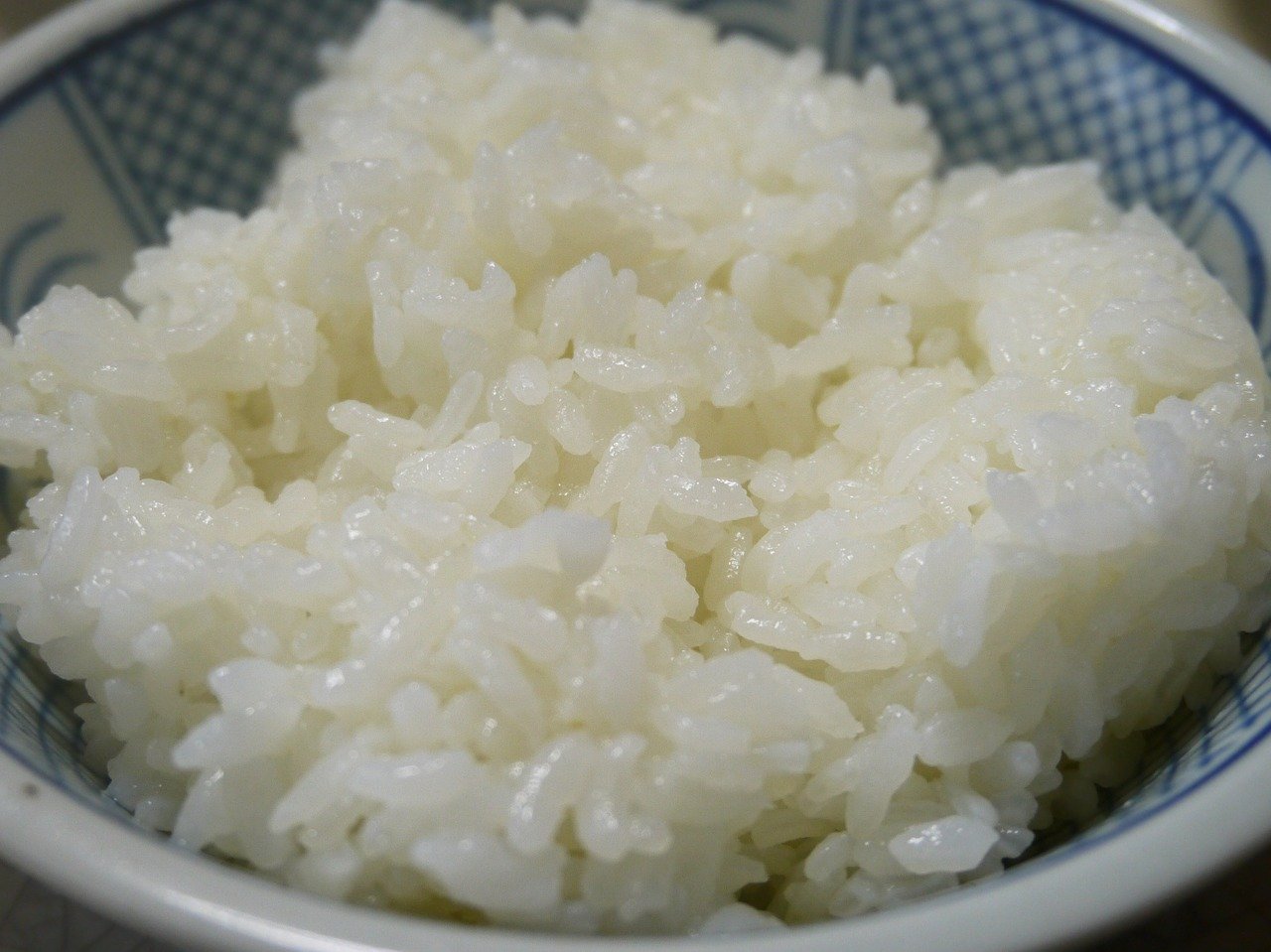
The answer is yes!
Carbohydrates are found in rice, but it also has some protein and fiber. For dogs with digestive issues, it is typically used in a bland diet and is a component in many dog meals.
Although rice is safe for dogs to eat, you should keep an eye on their carbohydrate consumption and the overall nutritional balance of their diet. A well-balanced diet doesn’t necessitate or encourage the inclusion of additional protein or carbohydrates on a regular basis.
Is Rice Good For Dogs?
Rice is a great source of many critical nutrients, but there are some variances between the various varieties. Brown rice, a whole grain alternative of white rice, has a higher concentration of vitamins and fiber than white rice. However, if you’re only feeding a small bit of rice alongside your dog’s full and balanced dog food, you don’t need to worry about adding additional nutritional content.
White rice cooks faster than brown rice, is easier for dogs to digest, and has been used to ease the discomfort of many pups with a rumbling tummy. You should always monitor your dog’s reaction to rice, especially when introducing it for the first time into their diet, no matter which alternative you choose to offer them. Even though allergic reactions are rare, if you observe your pet losing his or her hair or becoming itchy, call your veterinarian right away.
How To Feed Rice/How Much To Feed
While rice can be a healthy addition to dog food, it should only be given in small amounts because too many calories and carbs can contribute to weight gain that is unhealthy. Make sure the rice is thoroughly cooked before feeding it to your dog, and then allow it to cool. Do not add any butter, salt, or other ingredients to the rice after it has been boiled or steamed.
Feed no more than a quarter cup of rice for a large dog and a few tablespoons for smaller dogs. It’s common to combine rice with lean protein (such as shredded chicken breast) as part of a bland diet for stomach distress. To avoid giving your pet an unbalanced diet, feed little quantities frequently and just for a short time.
The Benefits/Drawbacks Of Feeding Rice
Brown rice, which still retains the bran and germ, can be difficult for your dog to digest because of the fiber it contains. Dogs often have easier time digesting white rice than brown rice because white rice is high in carbohydrates.
In addition to being high in soluble fiber, white rice can aid in the promotion of stool production in dogs suffering from diarrhea.
What Kinds Of Rice Can Dogs Eat?
Jasmine and Basmati
In comparison to other forms of rice, long-grain varieties like jasmine and basmati are typically white and have longer grains. Whether you use long or short-grain rice, it doesn’t make much difference (with white having the easiest digestibility).
Wild Rice
Wild rice is actually a seed from a different type of plant, not rice. It’s okay for dogs to consume wild rice, because it has a comparable nutrient profile to brown rice. For dogs, rice cakes are easy on their digestive systems.
Treats like rice cakes or other extras shouldn’t account for more than 10% of your pup’s daily caloric intake.
Rice Cake
Your dog is begging for a taste of your fried rice after you ate Chinese food. However, you should be careful feeding your dog fried rice. The reason for this is that it contains onions, which have been shown to kill red blood cells in cats and dogs.
Rice Krispie Treats
Dogs should not be given rice krispie treats, despite the fact that it may seem enticing. The marshmallows have a lot of sugar in them. A dog biscuit is a far better reward for your canine friend.
Bottom Line
As one of the world’s most popular foods, rice is a basic that we like sharing with our four-legged companions as well. So, as long as the rice is free of flavors or fats, it’s a fantastic food to share with your dog.
An abundance of carbohydrates in the form of this low-calorie, low-fiber grain helps to calm an upset stomach or control a bad case of diarrhea. Your dog’s immune system will benefit from its probiotic characteristics.
Your veterinarian’s advice and your dog’s health needs will dictate how much you should begin with.






